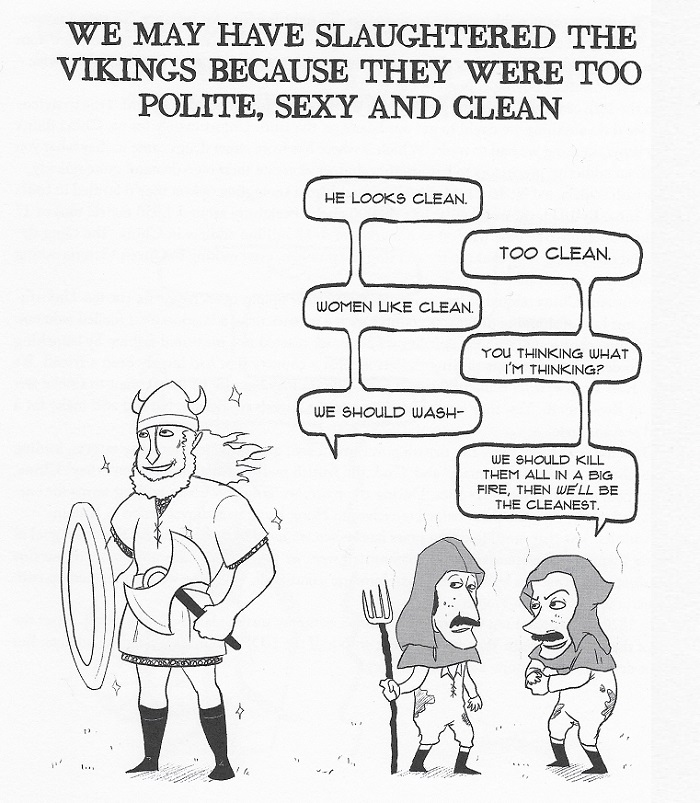James Felton’s “52 Times Britain Was a Bellend” hilariously confirms your worst suspicions about UK history
One of the most reliably funny political commentators on Twitter has burst onto the literary scene with a book of “the history you didn’t get taught at school.” Comedy writer, James Felton‘s newly released work, ‘52 Times Britain Was a Bellend‘ has gone straight to the top slot in the political humour category, with its self-explanatory content – some of the terrible acts carried out by Britain, which were subsequently swept under the carpet. And it’s an enormous carpet.
You’ve almost certainly seen some of James’ scathing tweets on the progress of Brexit, and other topical matters, such as these:
Number 10 are now saying that a deal has been done. Congratulations. After three years of hard work, two prime ministers and holding all the cards, you have beaten the EU into accepting one of their own initial suggestions, which Parliament will now reject.
— James Felton (@JimMFelton) October 17, 2019
2016:
“Brexit will improve your lives”2019:
“Small chance you might have to wipe off your shit with a flannel” pic.twitter.com/fCBm1UvO9k— James Felton (@JimMFelton) October 9, 2019
The same combination of humour and clearly presented facts provides the basis for the fifty-two historical anecdotes in the book. James has kindly allowed us to reproduce one of them for your enjoyment, complete with Emanuel Santos’ wonderful illustration.

In 1002, King Æthelred the Unready ordered the massacre of “all the Danish men who were among the English race” on St Brice’s Day. The Danish had been settled in parts of England for a hundred years or more, so it must have come as a bit of a shock when they were rounded on and killed in notable numbers.
In Oxford, one group of Danish men broke into a church to hide from the locals who were in full pitchfork mode by this point. In measured response, the locals set fire to the church on a religious holiday, burning at least 34 men alive.
So why did this happen, and why were the (quite religious) locals so keen to kill a group of people (for which they probably believed they’d be damned for all eternity) that they’d even risk burning a church to the ground (and risk being damned for all eternity a second time)?
Well, as justifications for slaughter go, “they looked prettier than us” is right up there with “honestly we had all this gasoline lying here and I was bored”, but that may actually have been a factor, according to one account nearer the time.
“The Danes made themselves too acceptable to English women by their elegant manners and their care of their person,” one 13th century chronicle read, justifying why the slaughter took place.
“They combed their hair daily, according to the custom of their country, and took a bath every Saturday,”
I know you already want to find their graves, dig up their skeletons and burn them one more time for this, but wait, there’s more.
“And even changed their clothes frequently, and improved the beauty of their bodies with many such trifles, by which means they undermined the chastity of wives.”
Yes, as well as bathing four times a month, like the Queen or a high-end dog, these bastards were changing their clothes.
Essentially, the English may have seen a group of well-kempt Danes and rather than deciding also to wash, we thought it would be far less hassle merely to slaughter anyone else who did. Their cleanliness was making the rest of the English look bad and no just God could blame us for burning them alive in an abbey.

